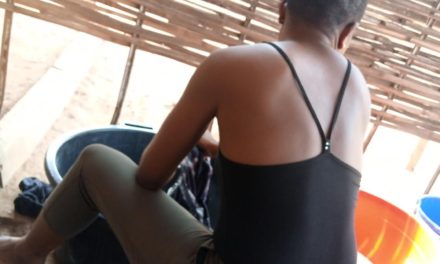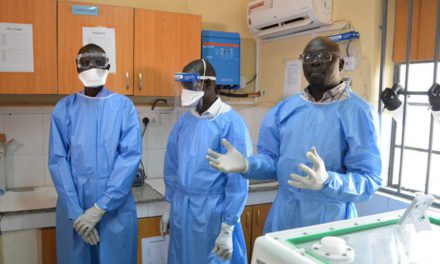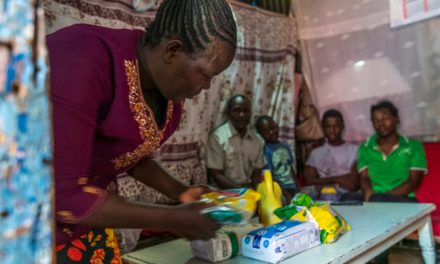
Risk Of Utis As Sanitary Towels Run Out Of Shelves

“…I cannot remember the last time I used a sanitary towel. When on my periods I result in using a piece of a mattress.”
By Damaris Kiilu
With COVID-19 comes a new threat of a severe shortage of sanitary towels and a more worrisome risk of women contracting Urinary Tract Infections (UTI) in the region.
The threat comes as the world marked the first-ever online Menstrual Hygiene Day, themed Periods in Pandemics, at a time when there is a severe shortage of sanitary products.
A sharp rise in prices of pads and tampons and lack of access to basic information and services about menstrual hygiene management has also been noted in a situation that has left girls and women worldwide struggling to manage their periods during COVID-19 lockdowns.
When sanitary products are hard to obtain, people resort to using unhygienic alternatives that can increase their risk of reproductive and UTIs.
Ann*, a 23-year-old mother of one, is forced to weigh between buying sanitary towels or looking for ways to survive on the streets, where she currently resides.
“I cannot afford a pack, it’s not a priority for now,” she added.
Her views were echoed by a 15-year-old girl who resorts to using an old mattress when it is at that time of the month.
“My parents are separated, and my mum is an alcoholic. I cannot remember the last time I used a sanitary towel. When on my periods I result in using a piece of a mattress,” adds another teenage girl whose name is withheld.
Stakeholders feel that more should be done to help ladies in Kenya who cannot access the basic necessity.
Wanjiku Kihika, the Chief Executive Officer (CEO) at Tribeless Youth noted that menstrual health situation in the country is dire, and many ladies are forced to opt between buying food or a pack of pads.
“The government should make the towels free and easily accessible as is the case with condoms in most government facilities,” said Kihika.
In place of this, Kihika is part of a campaign that seeks to eradicate period shame. This is through a crusade dubbed “No girl should go a month without a pack” which seeks to sensitize the need to have sanitary towels as part of the care packages to the families that are most affected by COVID -19.
A recent study in India evaluated the incidence of Urinal Tract Infection (UTI) in women aged 18-45 years using disposable pads versus the reusable absorbent pass and found that the reusable pads were associated with symptoms of UTI.
This study also comes after alarming findings that have emerged from a survey carried out by child rights and humanitarian organization Plan International in 23 countries.
The number one issue reported was product shortages, as global supply chains are disrupted and smaller-scale private sector enterprises cease trading, deliveries of goods has slowed, particularly in remote areas.
“From Kenya to Nepal, Australia, Ireland, and Cambodia, COVID-19 lockdowns are causing big problems for people who menstruate. Periods don’t stop during a pandemic but managing them safely and with dignity has become a whole lot harder,” said Dr. Rosamund Ebdon, Plan International’s Head of Policy.
Dr. Esbon flagged out intentional inflation of prices during this period as a serious concern.
“In some cases, stigma and shame associated with menstruation are on the rise, as girls have no other option but to use unsafe alternatives and being confined to their homes, are no longer afforded privacy. Lack of access to safe sanitary products during COVID-19 poses a real threat to the health and safety of people that menstruate, with the have products becoming more expensive during the pandemic. In some cases, the prices have been opportunistically inflated to meet demand,” said Dr. Esbon in a Statement.
“Not only have prices increased but with the pandemic significantly affecting livelihoods and household incomes, people have less money to buy sanitary products than before the COVID-19 pandemic began, even when products are available”, said Dr. Ebdon.
Dr. Ebdon noted that menstrual health and hygiene management must be built into COVID-19 health responses and whilst lockdowns continue, it should be built into remote learning curriculums.






















Recent Comments